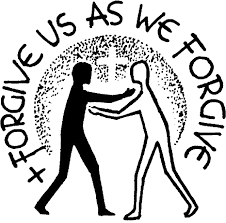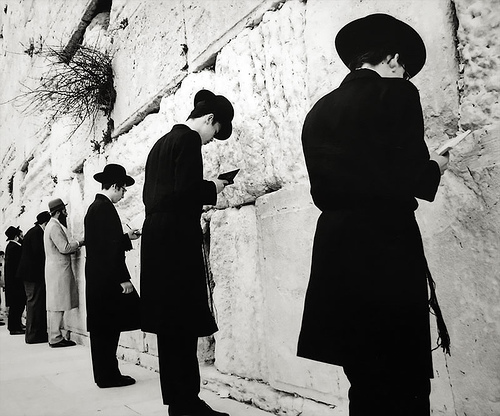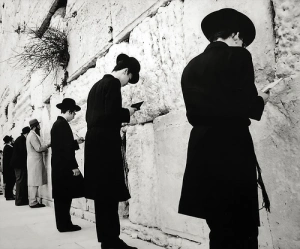 We live in a big world, but indeed we live in a small one. Today, news is available to us all at the touch of our fingertips and via our TV screens, and one’s serene life somewhere can be brutally disrupted by news of happenings thousands of miles away. This was the case last month with the series of news reports concerning racial violence in the US, focused on killings by white police officers of black men, and retaliatory killings by aggrieved black men of innocent police officers. Being a Ghanaian “sitting my somewhere”, its all too easy to ignore this phenomenon and go on with my life, but that innocent, mind-my-own-business side of mine died a few years ago, courtesy of certain shifts in my perspective on the human problem of racial and ethnic tension driven by changes in my reading of the New Testament.
We live in a big world, but indeed we live in a small one. Today, news is available to us all at the touch of our fingertips and via our TV screens, and one’s serene life somewhere can be brutally disrupted by news of happenings thousands of miles away. This was the case last month with the series of news reports concerning racial violence in the US, focused on killings by white police officers of black men, and retaliatory killings by aggrieved black men of innocent police officers. Being a Ghanaian “sitting my somewhere”, its all too easy to ignore this phenomenon and go on with my life, but that innocent, mind-my-own-business side of mine died a few years ago, courtesy of certain shifts in my perspective on the human problem of racial and ethnic tension driven by changes in my reading of the New Testament.
Let me be straightforward here. I believe that the church is the only tool designed by God to actually show the world how racial tensions can be overcome. Not the government, not politics. But to do that the church has to confront some of it’s own flawed theology which has rather seen it buying into the racial hatred instead of standing against it. And it is here that I wish that the church worldwide, especially Protestant churches in America (but also critically, in Ghana) will take seriously the tremendous work over the last few decades of the school of thought about the NT called the New Perspective on Paul (heretofore referred to as NPP). I’ve written quite a bit about the NPP, and my latest take on reading the bible with that perspective can be found here. Coming away a few weeks ago from Scott McKnight and Joe Modica’s “The Apostle Paul and the Christian Life: Ethical And Missional Implications of the New Perspective”, a compilation of essays by a number of scholars on the implication of taking the New Perspective seriously, I looked again at what was happening in America, and it was obvious to me why Protestant Christianity hasn’t done much to help resolve this problem, but may have rather participated in worsening it, knowingly or unknowingly.
The NPP’s Paul: The Bearer of Yahweh’s Reconciliation
Although there are many well known scholars associated with the NPP and they all don’t agree with each other on every detail, I’ll be presenting mostly the thoughts of Nicholas Thomas Wright, seeing as he’s the one I’ve read the most from, though these points are not unique to him.
-
Paul wrote his letters in reaction to issues that arose as a result of his unique ministry amongst the apostles – being one who had dedicated himself solely to ministry to the Gentile world. He was dealing with problems, not writing a rule book.
-
The primary problem was that of how Jews and Gentiles are all now acceptable before Yahweh without the requirement for the Gentiles to keep the Law.
-
Paul poses Jesus’s death as a means by which Yahweh reconciles himself not just to his unfaithful wife Israel (and by extension, Jews), but to the rest of the world, to the nations, who have not known him but who are his anyway. Paul uses the language of “peace” to describe this in many of his letters.
-
This reconciliation was not only between Yahweh and his creation, but also meant a breaking down of the barriers of hostility between Jews and Gentile. Paul’s letters are full of guidance on how his churches should navigate this new reality, primarily by laying down one’s rights for the benefit of the other.
-
The cross is the means of God breaking the powers that hold us in chains to the devil, and setting all his creation free from the captivity of sin. God himself being willing to die on the cross to reconcile himself with his people is described by Paul in 1 Cor as “the power of God” (1 Cor 1:18) or “the demonstration of the Spirit’s power” (1 Cor 2:2-4) .
-
By this means of reconciliation, nobody has the upper hand anymore to be considered part off the people of God. Yahweh requires all to receive the gift of his forgiveness so to be considered a part of his people. This is what Paul’s language of adoption is all about. There are no more any natural born children – both Jew and Gentile are adopted children “in Christ”.
-
Being “in Christ” means one participates in his righteousness. Jew and Gentile become considered righteous/justified by being participants in Christ. There’s a long debate within the NPP on how to interpret 2 Cor 5:21, but I think Michael Gorman’s interpretation using the Eastern Orthodox concept of theosis is much better than NT Wright’s on this matter.
-
Yahweh now desires that all his people learn to live as one people, via his own power – via his own Spirit. The only means by which life together for people of different cultures, backgrounds and social standing is possible is via the same the cross as the example of God in Jesus – via self-sacrifice and the laying down of personal “rights” in favour of the other. Love within and without the body of Christ is the goal, and the power to love is given in living by the Spirit, not living by the flesh.
-
The Spirit then, is not given as a genie in a bottle to be rubbed up to fulfill personal desires and egos of those amongst and within whom it dwells, which is exactly Paul critique of the Corinthians. The Spirit gives different gifts to different people in order that those gifts may be used in service to the united people of God that gather together – to be used in service and in love.
-
The church is a sign to the world that Yahweh’s desire to be known as God over all the world, and hence to abolish ALL DIVISIONS so there is only one people of God has been launched. Therefore when the church fails at the task of integrating the rich and poor, the slave and free, the black man and the white man, the Jew and Gentile, male and female, the church has lost sight of it’s calling, and is still living in this age, when the age to come has already been inaugurated by the death of Jesus.
Reconciliation: The Center of Paul’s Teaching
It becomes obvious the impact that taking the NPP seriously about Paul’s mission, and reading the bible as a narrative of how God desires to choose a people for himself and dwell with them has on our practice of Christianity and church. Building our understand of Jesus and Paul beginning from Yahweh’s choice of Israel to his choice of the whole world via inclusion “in Christ”, yields a church that is not just interested in “saving souls” for heaven, but in revolting against the divisive structures of this world whiles in this world. And it will have to do this by taking up it’s cross and actively working towards ethnic, racial, gender and socio-economic integration within its own walls by the power of the Spirit, before it can have something to tell the world about these issues.
Rather, within most Protestant circles, Paul (and hence the whole bible) is read as focusing on justification of individual sinners before God, making one’s personal salvation the beginning and end of the matter, and leaving churches confused about their purpose after they have actually “won the souls”. No matter how hard classical Protestant leaders have tried, it’s been impossible to defend the accusation that a) the Protestant Reformers read back their own experiences of battling Roman Catholicism into Paul’s letters and therefore distorted its meaning and that b) their reading of the bible, and the propagation of such a reading within Protestant Christianity has led to individualism on the one hand, and complicity in or inertia in the face of divisive evil like slavery, racism, segregation, sexism, colonialism and violence on the other. Even when reconciliation is mentioned in most Protestant teaching, it is limited to God reconciling himself to the sinful individual, and has very little with people groups being reconciled to one another (whereas Paul’s language is of God reconciling himself to humanity, not just individuals, as well as bringing reconciliation amongst people groups). The most Protestant of all European nations in the early 20th century, Germany, was also the worst culprit when push came to shove.
In Africa, our Protestant churches, still bearing the individualist fruits of their Western torchbearers , continue to be totally incapable of any real social transformation. The systemic evils of tribalism, classism, corruption, poverty, unemployment and destitution continues to abound, whiles they spend all their energies raising “harvest” upon “harvest” to build the next big church building. Charity is practiced as one-off events meant to placate consciences, typically in far off, romantic locations. The needs of church members, or neigbhourhoods within which local churches are situated are marginalized in favour of grandiose investments in infrastructure projects on a national scale so these churches can put their name on it and claim they are working for the common good – what I call “empire building”.
And yet given the realities of the time in which we live, it is frustrating to watch Protestant Christian leaders, especially within the Reformed tradition in the West, focus on defending their heroes instead of being true to scripture and to the mission of Christ in the world – to the hope of a new heaven and a new earth, to the hope of all races and tribes singing together before the throne, which age has already been launched by the resurrection of Jesus Christ.
So I have little hope for both the American and African church when it comes to racial reconciliation if it continues down it’s good old individualistic trajectories. This trajectory is the main reason why 40 years after segragation laws were revoked in the US, American churches are still segregated into churches dominated by whites and churches dominated by blacks etc. In this light, I wish the American Reformed churches will realize that the New Perspective is not it’s enemy. The Spirit which is at work in the Reformed churches, though they somehow failed to listen to Him when the cry for freedom from slavery, segregation and inequality rang out in times past, and which today all Reformed churches acknowledge was a mistake, is the same Spirit which is at work to bring Black, White, Asian, Arab, Jewish Christians of all classes, gender and economic standing together in post 9/11 America. The Sprit’s work didn’t come to an end after Reformation, and it certainly will not be kept in that bottle forever. It is better to listen to the Spirit and to truth, than to be engaged in defense of tradition.
And I have little hope for African Protestantism when it comes to reconciliation at all levels, if it continues down its good old Christendom trajectory. For African Protestant Christianity is so comfortable in its Christendom mode, there is very little introspection and questioning going on. It took our brothers in the Western world two World Wars to cause Christians to ask serious questions about the individualistic teaching that allowed such evils to happen. Today, Europe has virtually abandoned Christianity, and faith in Jesus is declining in the US as well. Do we need some cataclysmic events here before we wake up and smell the coffee that is brewing – the coffee of ethnic, social and economic reconciliation that the Spirit of God has been brewing for the world since Jesus’s resurrection?
Wake up, and smell the coffee!!
Vicit Agnus Noster, Eum Sequamur – The Lamb has Conquered, Let us Follow Him.

